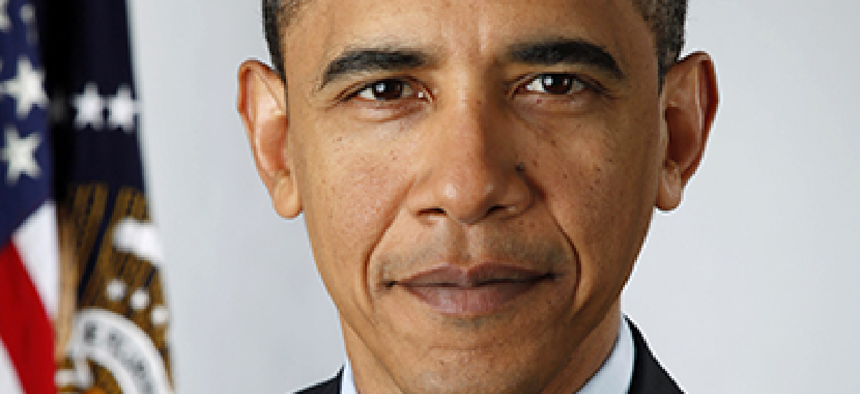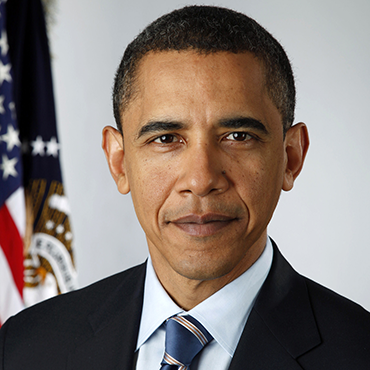Obama leans on tech in gun control action

President Barack Obama's executive actions to tighten national gun control include efforts to bolster FBI and ATF databases, as well as spur research and development of safe gun technology.

President Barack Obama has issued executive actions that would improve federal background check databases and support technologies to make guns more secure.
President Barack Obama's effort to deliver what he called common-sense gun control with a series of executive actions features significant IT components.
Improvements to computerized background checks for gun buyers would close the gap in a two-tiered system in which "dangerous people [are] playing by a different set of rules," he said. Online sales or private sales at gun shows often skirt the established system, he added.
In Jan. 5 remarks in the East Room of the White House, Obama said the improvements would push the "outdated background check system into the 21st century."
The measures would strengthen and speed federal background database checks with the help of the U.S. Digital Service, tap new background database sources and support technologies to make guns more secure.
FBI has partnered with USDS to modernize its National Instant Criminal Background Check System (NICS), housed at the FBI's Criminal Justice Information Services Division facility in Clarksburg, W.Va.
According to a White House statement, the goal is to process background checks within three days. Under the current system, gun dealers can complete a sale if a background check through NICS comes back clean or if the process takes more than three days to complete.
Improvements under the FBI and USDS collaboration include processing background checks from gun sellers 24 hours a day, seven days a week, which would improve response times and more quickly notify local authorities when a potential buyer's background check raises concerns. The FBI's website states that NICS is currently available 17 hours a day, seven days a week, except Christmas.
In addition, the White House directed the FBI to hire more than 230 additional examiners and other employees to help process the background reviews.
Obama also wants to add some key mental health data to the reviews. On Jan. 4, the Department of Health and Human Services modified the Health Insurance Portability and Accountability Act Privacy Rule to permit health care providers to disclose the identities of mentally ill patients to the FBI's NICS. The rule stipulates, however, that no diagnostic or other personally identifiable information on an individual would be included in the disclosure, except that he or she is subject to the "federal mental health prohibitor" that bars gun ownership.
To track illegal online firearms trafficking, the White House said the Bureau of Alcohol, Tobacco, Firearms and Explosives has established an Internet Investigations Center staffed by federal agents, legal experts and investigators. According to the White House, that team has already identified and prosecuted a number of traffickers who use the "dark net" to illegally buy and sell firearms.
ATF has also dedicated $4 million and additional personnel to augment its National Integrated Ballistic Information Network, the database that tracks ballistic evidence.
Republican lawmakers quickly denounced the executive actions and pledged to battle the measures in court and deny funding for them in the next appropriations cycle.
Sen. Tom Cotton (R-Ark.) said the actions "purposely seek to blur legal lines and intimidate individuals from exercising their right to buy or sell a firearm." He added that criminals and people with mental illnesses "will not be deterred by speeches or presidential memos" from obtaining firearms.
Along with improvements to the databases and web enforcement efforts, the White House wants to take advantage of the federal government's position as the country's single largest gun buyer to promote the use and development of emerging gun safety technology.
Building on a 2013 directive to the Justice Department to review technological advances in firearm safety, the president has asked Justice, the Defense Department and the Department of Homeland Security to develop a strategy to expedite gun safety technology.
The three agencies have 90 days to develop a joint research and development strategy on real-world deployment and use of emerging technologies, including devices built into guns that can scan the user's fingerprints and only allow the owner to fire it, location apps for lost or stolen weapons and child guards.
"We have to boost gun safety technologies," Obama said. "If a child can't open a bottle of aspirin [because of safety caps], then they shouldn't be able to pull the trigger on a gun."
Justice, DOD and DHS were also directed to stay on top of new technological developments and consult with other agencies that buy firearms on how to incorporate those technologies into future acquisition specifications.


